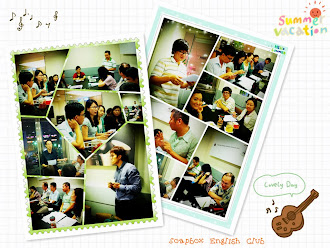板橋區文化路段421巷11弄1號 (陽光甜味咖啡館)
新埔捷運站1號出口 旁邊7-11巷子進入20公尺 看到夏朵美髮院 左轉 PM7:00--9:30

同性婚姻合法化
Taiwan's High Court Rules Same-Sex Marriage Is Legal, In A First For Asia
npr.org Bill Chappell Twitter
Taiwanese laws that prohibit same-sex couples from marrying violate their personal freedom and equal protection, the island's Constitutional Court ruled Wednesday. The justices called sexual orientation an "immutable characteristic that is resistant to change."
"The judges have today said yes to marriage equality," said Amnesty International's Lisa Tassi, who directs campaigns in East Asia. "This is a huge step forward for LGBTI rights in Taiwan and will resonate across Asia."
Taiwan's president has asked the Ministry of Justice to come up with a legal framework for complying with the decision.
The court's ruling gives Taiwan's government two years to change its marriage laws. If that deadline passes without legislative action, same-sex couples will be allowed to register for marriage and obtain "the status of a legally recognized couple."
The long-awaited ruling was greeted by cheers at an outdoor rally organized by the Taiwan LGBT Family Rights Advocacy, which livestreamed the announcement on a large video screen as well as on Facebook.
Allowing single people to have the autonomy to decide whether to marry and whom to marry, the Taiwanese court said in a news release, "is vital to the sound development of personality and safeguarding of human dignity, and therefore is a fundamental right."
The court also said that when same-sex couples create "a permanent union of intimate and exclusive nature for the committed purpose of managing a life together," they're not affecting the rights of people in a heterosexual marriage.
Critics of legalization voiced their opposition to Wednesday's ruling, as Taiwan News reports:
"Groups opposing same-sex marriage, including Coalition for the Happiness of Our Next Generation, protested outside the Judicial Yuan after the result came out. Some requested the invalidation of the interpretation and the president to step down."
Noting a history of discrimination against homosexuality and homosexuals' lack of political power, the court said that "in determining the constitutionality of different treatment based on sexual orientation, a heightened standard shall be applied."
Ahead of Wednesday's ruling, there were signs that Taiwan was poised to legalize same-sex marriage. It was a key campaign issue for President Tsai Ing-wen, who took office one year ago, and the legislature has been weighing a change to Taiwan's Civil Code, according to The China Post.
In 2013, Taiwan's Interior Ministry surprised many when it decided "not to revoke a marriage between two trans women," as Gay Star News reported. In doing so, the government said the couple had been "a man and a woman" when they registered to marry.
Q:
What are your opinion about Taiwan’s high court rules same-sex marriage is legal?
What do you think the idea that prohibit same-sex couples from marrying violate their personal freedom?
Can a gay man fall in love with a woman?
Is sexual orientation unchangeable?
What are the signs that you might be gay or lesbian?
How to tell if your guy friend who is gay?
 不知覺地偏見?
不知覺地偏見?
Types of Unconscious Bias and the Shocking Ways They Affect You
by Siofra Pratt socialtalent.co
unconscious bias
How many decisions have you made today? 5? 10? 15? Chances are you won’t be able to put an exact figure on it. That’s because we make countless decisions every day without even realising it. Even as you sit here reading this you’re making decisions. Decisions about me, the content, the questions I’m asking you. And the answers to all of these questions are influenced heavily by something researchers refer to as “unconscious bias.”
What is “unconscious bias”?
“Ok, so what is unconscious bias and why is it influencing my decisions so much?“, I hear you ask. Well, simply put, bias is an inclination or prejudice for or against one person or group. In other words, unconscious bias are unconscious feelings we have towards other people – unconscious feelings that play a strong part in influencing our judgement of certain people and groups, away from being balanced or even-handed, in many different areas of life.
One of the most prominent areas of life where bias can play out is the workplace. In fact, one of the strongest biases we have in the workplace is gender bias. Why? Well, our feelings about gender and the stereotypes we’ve all associated with gender are something we’ve developed throughout our whole lives. How we’ve been brought up, where we’ve been brought up, how we’ve been socialised, our socialisation experiences, our exposure to other social identities and social groups, who our friends are/were, as well as media influences, all affect how we think and feel about certain types of people – and especially about what makes a man a man and what makes a woman a woman.
It’s important to mention however, that most bias stereotypes, do not come from a place of bad intent. It’s just a deep seated, unconscious stereotype that’s been formed in our brains through years of different influences we often had no control over. For example, just think about of all the phrases you’ve heard associated with women in the workplace over the years, like “The Glass Ceiling”, “The Maternal Wall” and the “Gender Pay Gap”.
How does bias affect our actions?
“Most of us believe that we are ethical and unbiased. We imagine we’re good decision makers, able to objectively size up a job candidate or a venture deal and reach a fair and rational conclusion that’s in our, and our organisation’s, best interests,” writes Harvard University researcher Mahzarin Banaji in the Harvard Business Review. “But more than two decades of research confirms that, in reality, most of us fall woefully short of our inflated self-perception.”
Yes, in reality our biases affects us and our decision-making processes in a number of different ways:
Our Perception – how we see people and perceive reality.
Our Attitude – how we react towards certain people.
Our Behaviours – how receptive/friendly we are towards certain people.
Our Attention – which aspects of a person we pay most attention to.
Our Listening Skills – how much we actively listen to what certain people say.
Our Micro-affirmations – how much or how little we comfort certain people in certain situations.
Q:
What is “unconscious bias”?Do you know any types of bias?
How does bias affect our actions?
What are the factors that influence our judgments?
Are you sure you’ve always made impartial decisions?
How to make right decisions?
What are your opinion about “The Glass Ceiling”and the “Gender Pay Gap”?
How you estimate people?







